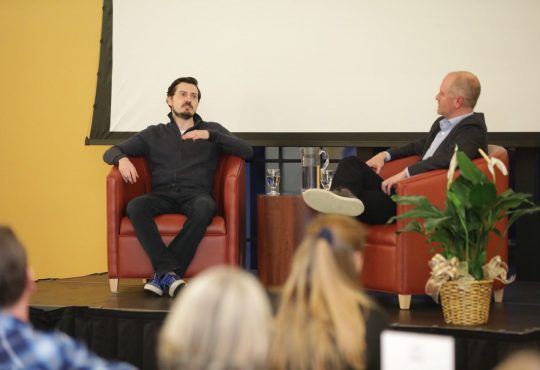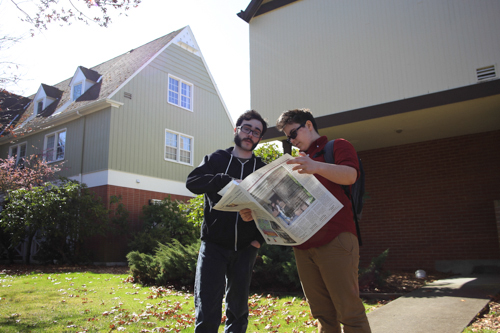Nicholas Cary, graduate of the class of 2007 and current CEO of Blockchain, has made what is thought to be the first ever Bitcoin contribution to an American university.
Blockchain is quickly gaining notoriety as one of the world’s most popular online “wallets” for Bitcoin, which is most easily defined as both a technology and a virtual currency.
“Students at UPS use email every day of their lives [because] it allows them to send messages to and from everyone they know instantly basically for free. That’s the promise of Bitcoin for money,” Cary said.
“Bitcoin is based on a peer-to-peer network so there are no third parties, no one can freeze your account, and if certain precautions are taken it’s impossible to destroy them.”
Cary chose to make his donation in Bitcoin because he is convinced that it is superior to current forms of currency. Bitcoin boasts zero-fee transactions and complete anonymity to protect the identity of the user.
“There’s still a housing bubble, there’s an education bubble, and now there’s the largest stock bubble in the history of the world,” Cary said. “Thanks to Bitcoin I’ve been able to pay off my student loans nearly a decade early. If I had made the same donation a year ago, and UPS had kept it in Bitcoin instead of immediately converting it to dollars, it would now be worth over $250,000.”
However, due to the fact that Bitcoin is essentially a commodity, similar to a digital version of gold, its value is almost completely determined by people’s daily sentiments, similar to stock. Price fluctuation has already proven itself to be an issue in the Bitcoin network.
“[Value of Bitcoin] is entirely based on the faith of the users of Bitcoin. It works just like trading equities on the stock market would, where the price is determined by the last trade that was made,” freshman Chili Johnson said.
“It’s more volatile than gold because gold has some inherent value. It’s physical and you can use it to make things.”
Although the anonymity that Bitcoin provides ensures confidentiality, those who find a way to steal Bitcoin are able to remain anonymous as well. On Feb. 28, Mt. Gox, a major Bitcoin exchange located in Japan, filed for bankruptcy, having reportedly lost more than 850,000 Bitcoins (approximately $450 million) in a devastating network hack.
“There’s no fraud insurance. If someone takes your Bitcoins and uses them, there’s no authority to give you those Bitcoins back,” Johnson said.
“The value of Bitcoin, unlike the U.S. dollar, isn’t partially insured by the government, so there’s no authority to set [the value].”
Cary acknowledges that Bitcoin has experienced setbacks. However, he is confident that in time the benefits will significantly outweigh the existing obstacles.
He equates Bitcoin’s current state to Henry Ford’s struggle of introducing the automobile into a world that knew only of horse and carriage.
“It’s true there has been some strong criticism of Bitcoin and, like any new innovation, it should be scrutinized carefully. The entire industry is very young which means it’s experiencing growing pains,” Cary said.
“Bitcoin is prone to fast value changes, but what I do know is that my career and job didn’t exist 3 years ago, and now there’s an enormous amount of human and financial capital moving into this industry. The rate of technical change is accelerating. To be naive of this new phenomenon and simply dismiss it would be unwise.”
The network’s stability relies on the acceptance and support of its users.
Bitcoin has risks that are inherent to any innovative and groundbreaking idea, technological or otherwise, but the financial prospects are thought to be exponential.
“For the first time in the world someone who has a smart phone can be their own bank. There’s no waiting period or credit check. No minimum account balance. You don’t have to prove you’re employed,” Cary said.
“The 2.5 billion unbanked people on planet earth [now] have access to the same financial services as a fortune 500 CEO… I’m hopeful [that] in the future more universities will follow UPS’ lead and one day start to accept Bitcoin for more than just donations.”






